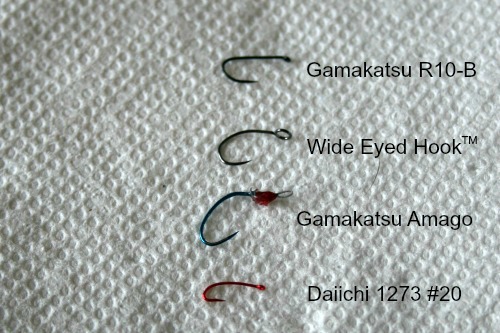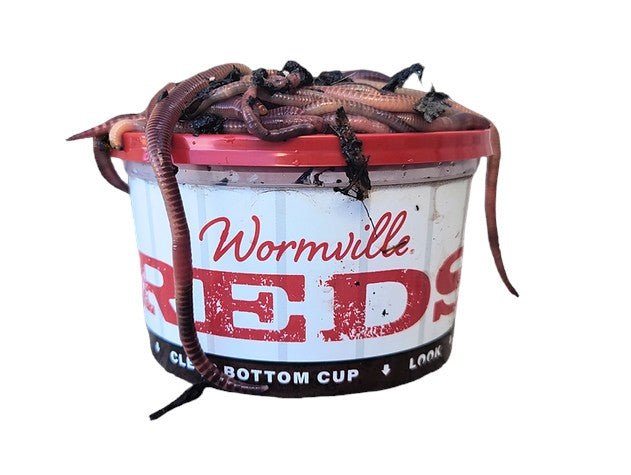The Greatest Guide To Where To Find Red Wigglers
The Greatest Guide To Where To Find Red Wigglers
Blog Article
Where To Find Red Wigglers Things To Know Before You Get This
Table of ContentsExamine This Report about Where To Find Red WigglersHow Where To Find Red Wigglers can Save You Time, Stress, and Money.6 Easy Facts About Where To Find Red Wigglers DescribedAbout Where To Find Red WigglersThe 7-Minute Rule for Where To Find Red WigglersThe Best Strategy To Use For Where To Find Red Wigglers
For ideal outcomes, you wish to fire for concerning 60-70% wetness degree. The most basic test for this is to squeeze a handful as tough as you can. At the perfect wetness degrees which is just under 70% that handful ought to barely produce one decrease of fluid. pH in a worm container is pretty easy to keep.
The Indian Blue is starved, but also prefers a warmer climate and it likewise shows a propensity to run away the container. The red wiggler is a durable worm and isn't as choosy concerning its climate. I like to call it the Ford Taurus of vermicomposting worms; you won't brag to your hardcore composting friends that you own them, but they will certainly serve you well.
As Tap demonstrated, a fishermen can do a good deal to make a worm much more enticing.
Where To Find Red Wigglers - Truths
I believe you will certainly as well if you attempt them. The smaller sized the trout stream, the better worms job is an axiom that hasn't transformed in the 100-plus years because Perry wrote his short article. Fishermens of his age simply stuck their rickety fly rods with alder tangles and dropped a heavy worm right into a deep hole.
Morning is prime feeding time, and the insubstantial bait's slow-moving descent leaves 5 inches of agonizing healthy protein completely view for a long time. After you've made the actors, maintain the bond open and placed the rod in a forked stick. The line will certainly diminish the pole in slow loops as the worm resolves, however generally the sluggish loopholes will become a blur, and the morning will all of a sudden obtain instead interesting.
I generally make use of a whole 'spider, prefer marabou dressing, and drop the rod for two or 3 secs when I get a hit.
If it's there, established the hook with a move instead than a jerk. Once in a while you'll find yourself hooked to those sluggish, hearty yanks, and really feel the weight of a nice walleye.
Where To Find Red Wigglers for Dummies
When the hefty walleyes relocate on to the big-water shoals in the late summertime, attempt going after them with a bucktail jig and a 1-inch pinch of nightcrawler. The bait covers the hook point, deflects weeds, and supplies a preference of prey. With nothing dangling or waving, it remains safe no matter present, casts, or enthusiastic panfish.
Whether you're wading or angling from a watercraft, wandering worms is among the wonderful searching techniques for bigger rivers. For trout, a spade-dug, 4-inch garden worm is the ideal dimension; for bass, walleyes, and steelhead, a nightcrawler might be a far better choice. The key is to wander the lure via feeding and holding locations since fish in current are not going to ferret out the bait, as they may in still water.
Strikes will come as a sharp pull as opposed to a pull or rap. Fish the shifts: mouths of tributaries, bank-side slicks, and the edges of large swimming pools. As the late Ed Zern, Area & Stream's fantastic satirist, once placed it: Anglers are born honest yet they overcome it. His dictum applies to any kind of number of angling maneuvers, consisting of the issue of including an item of worm to a wet fly.

The Best Guide To Where To Find Red Wigglers
Include a couple of hundred worms and feed them two times a week. Maintain the bed linens wet however not damp. On the menu: lettuce, fruit and veggie waste, and the periodic nongreasy leftover.
Just like veggie scraps, you can take your used coffee premises and add them to a worm box. Worms love consuming coffee grounds.
When the heavy walleyes go on to the big-water shoals in the late summertime, try going after them with a bucktail jig and a 1-inch pinch of nightcrawler. The lure covers the hook point, disperses weeds, and supplies a taste of prey. With absolutely nothing dangling or flapping, it remains protected no matter current, casts, or enthusiastic panfish.
The Best Strategy To Use For Where To Find Red Wigglers
Whether you're wading or angling from a watercraft, wandering worms is just one of the fantastic browsing techniques for larger rivers. Where To Find Red Wigglers. For trout, a spade-dug, 4-inch garden worm is the best dimension; for bass, walleyes, and steelhead, a nightcrawler might be a better choice. The key is to drift the bait through feeding and holding locations due to the fact that fish in current are not mosting likely to chase after down the lure, as they may in still water
Strikes will come as a sharp pull instead than a pull or rap. Fish the transitions: mouths of tributaries, bank-side slicks, and the sides of large pools. As the late Ed Zern, Area & Stream's terrific satirist, once put Learn More Here it: Anglers are birthed truthful but they overcome it. His dictum relates to any type of variety of angling maneuvers, including the issue of including a piece of worm to a damp fly.
Yet raising your own bait means you can slide out of the house and hit the fish pond prior to Mom comes homejust like in the old days. Here's exactly how to maintain a worm box: Cut a sheet of CDX-grade plywood, which is made with waterproof glues, to your measurements. Nail it together and drill a loads 12-inch holes in the bottom for drain.
The 10-Minute Rule for Where To Find Red Wigglers
Fill it with shredded paper, leaves, peat moss, and soil. Moisten lightly. Cover and let rest for a week. Add a couple of hundred worms and feed them two times a week. Maintain the bed linens damp yet not damp. On the menu: lettuce, fruit and vegetable waste, and the occasional nongreasy leftover.
Much like veggie scraps, you can take your made use of coffee premises and include them to a worm box. Worms love eating coffee premises. With the right conditions and damp, healthy dirt, worms can reside in a pail of dust for around three weeks. Store out of direct sunlight directory and maintain a temperature in between 50 and 80 levels.
Report this page